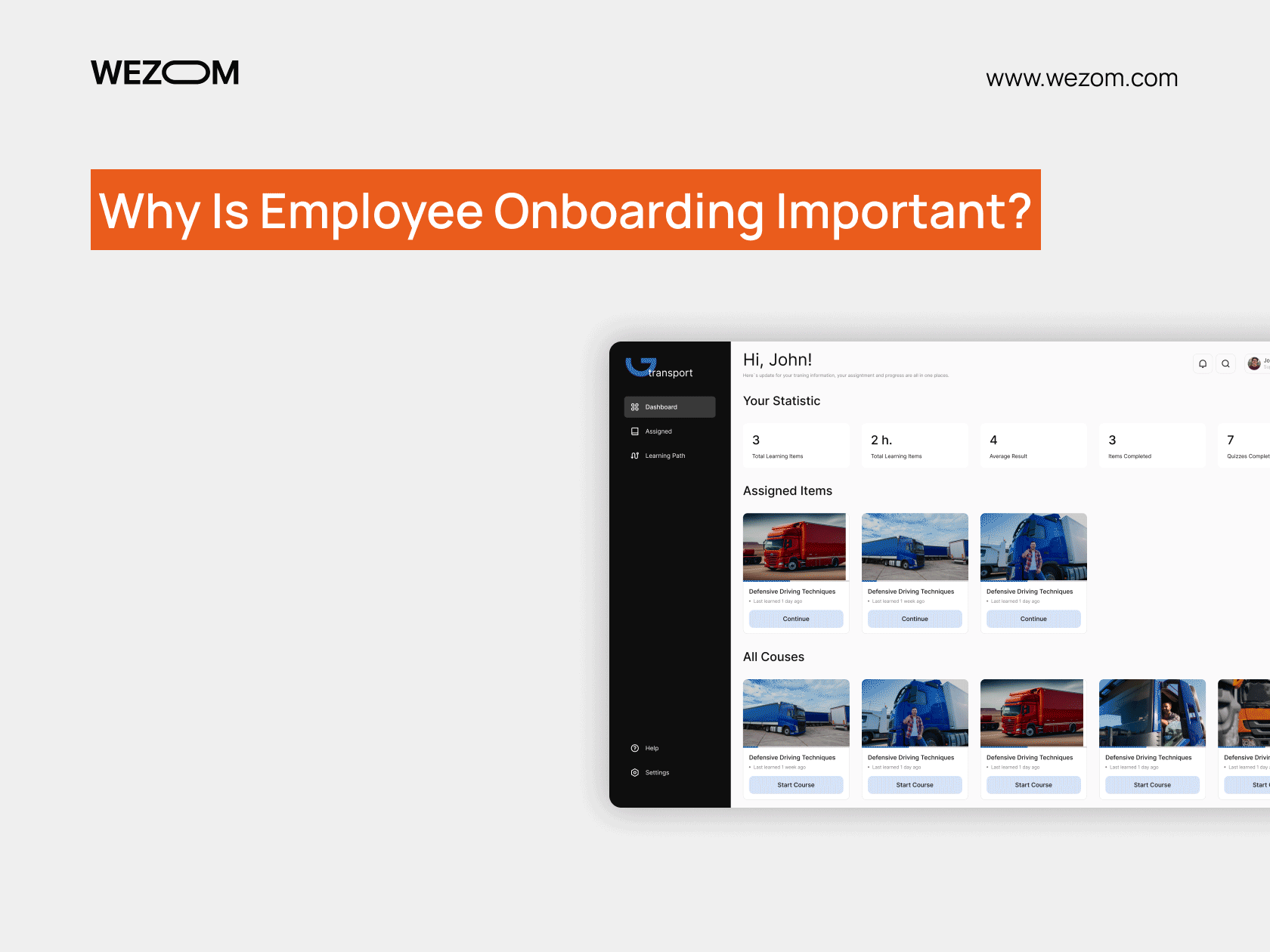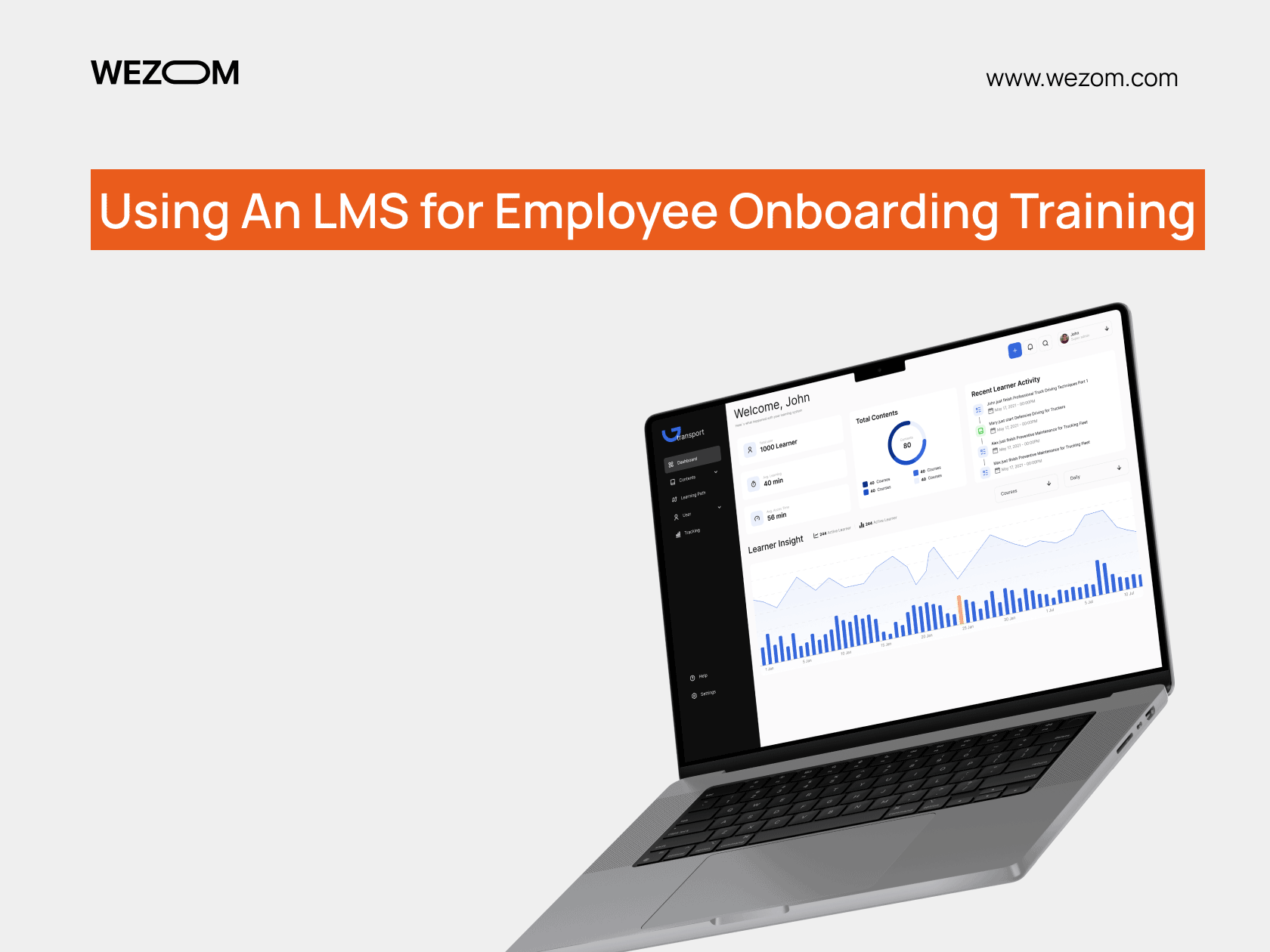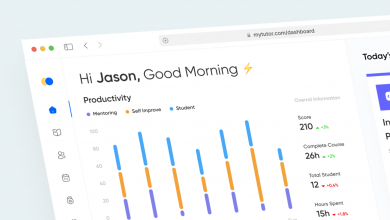When new employees join your team, you need to make sure that their delving into business processes is easy, comfortable, and stress-free. In essence, this is the immersion of new employees in a new work environment, also called onboarding. Below we will talk about the importance of onboarding and analyze how you can optimize it with the help of employee onboarding LMS.
Why Is Employee Onboarding Important?
Despite the proven effectiveness, onboarding is still not practiced by all companies and not in all industries. If you are one such company, you should find out why you need it.

1. Cost-Effective
The first thing you should start by accepting onboarding as a must-have business process in your company is the realization that well and properly-trained employees will perform their work duties faster, more efficiently, and with fewer errors. This means that from the first months of their employment, you will be able to get the desired business performance and protect your business from losses associated with the incorrect implementation of a particular assignment.
2. Provides Prior Knowledge
Each company has its own specifics in business processes, which your new employees need to be prepared for. And even if they have a colossal background of work in other companies, they still may encounter obstacles in the form of a lack of specific knowledge that will significantly complicate and slow down their work. This usually refers to the nuances of interaction with particular business software and hardware tools. However, in practice, this list can be much longer.
In turn, well-organized onboarding will imply initial familiarization of employees with these nuances, which will help them quickly and seamlessly integrate into the work process and begin to perform their job duties with a proper performance level.
3. Create A Company Culture
Onboarding also has indirect goals, such as introducing employees to the corporate culture of a particular company. In particular, during the onboarding, they will be able to get to know your best specialists, adopt their manner of behavior in a business environment, and learn their best practices even before they begin to perform their own tasks. This is especially important for professionals who will interact with your clients and partners in their workflows, as they will be responsible for demonstrating your unique cultural identity as well.
4. Immediate Evaluation Of Latest Hires
Even the most experienced HR specialists sometimes make mistakes, and flawless completion of all interview stages by a candidate in some cases does not guarantee their high productivity and usefulness in a particular vacancy. In turn, onboarding helps to assess the potential of a specialist in practice before they are allowed to fully perform their work tasks. Thus, thanks to onboarding, you will be able to optimize the composition of your workforce and will not allow new employees to “sit out” in positions that are not suitable for them for certain reasons.
5. Tracking And Reporting
Since onboarding is supervised by experienced employees who have been with your company for a long time, you will be able to quickly determine the KPI of your new employees. The data obtained can then be used to effectively integrate them into projects and determine the optimal workload.
6. Targeted Training
Onboarding often involves end-to-end monitoring of the performance of new employees, as well as checking the quality of their tasks. For example, all this is easily achieved through the implementation of onboarding training LMS. Therefore, shortly after hiring new personnel, you will be able to understand what their weaknesses and knowledge gaps are and eliminate them before they cause serious damage to your business.
Using An LMS for Employee Onboarding Training
Along with the undeniable importance of onboarding that we highlighted earlier, it is important to understand that all of the above benefits are achievable only with the right organization of this process.
In particular, you can come to the aid of a Learning Management System (LMS). Let's analyze the LMS role in onboarding in detail.

Designing engaging onboarding content
An LMS is more than just an organized database of knowledge needed to effectively immerse new employees in work processes.
With the right approach, it can act as a full-fledged online manual for a particular discipline, with educational approaches that greatly facilitate the learning process and increase its effectiveness. Gamification can be a special case of these approaches. However, in reality, when it comes to the development of a custom solution, you will be able to implement any educational idea (like experiential learning, interactive learning, implicit learning, and so on).
Personalization of the onboarding program
One of the main disadvantages of offline onboarding, especially when it is carried out in groups, is the lack of a personalized approach to each of the new employees (primarily due to time constraints). This is why, for more effective onboarding, it makes sense for many companies to combine offline techniques with online ones that can be implemented within an LMS with personalization capabilities. Personalization can refer both to the choice of the optimal educational approach (it is easier for someone to perceive new information through visual images and for someone –- by ear), and to the pace of learning.
Gamification and social learning
It can be difficult for your employees who are responsible for conducting onboarding to maintain the same mood throughout the entire training. In turn, this can negatively affect the motivation of new members of your team. To avoid these problems, you can delegate at least part of the educational tasks to your custom LMS. In particular, if it supports gamification and social learning, it will allow your new employees to effectively fill their knowledge gaps and get new useful skills, no matter how challenging they are.
Tracking and progress assessment
With a learning automation tool like LMS at hand, you can customize it to calculate KPIs that matter to your company. This is much more convenient and transparent than the subjective assessment of the mentors you have involved in the onboarding process.

Feedback and continuous improvement
An advanced approach to onboarding and induction eLearning will help you get instant feedback from all parties involved in the process: mentors, colleagues of your new employees, as well as new employees themselves. Thus, you will be able to constantly optimize the training plan to accelerate their full integration into the business processes and tasks within your company.
Enhance Your Employee Onboarding Process with An LMS
As you can see, LMS can help companies achieve their onboarding business goals faster, more efficiently, and with fewer resources. Thus, new employees get the opportunity to stay on probation for a shorter period of time than it was with other, more traditional approaches.
On the other hand, you should understand that existing off-the-shelf solutions often cannot cover the full range of onboarding tasks that are typical for a particular company. Therefore, if, when considering the most advanced options, you still did not find the optimal one, it makes sense to resort to custom development.
Conclusion
In general, onboarding is one of the key HR processes which is aimed at increasing the efficiency of new employees, boosting their loyalty, and also strengthening the team, regardless of its size. At the same time, maximum efficiency and productivity in achieving these goals are often achieved through the implementation of custom LMS.
If you are interested in creating such a solution for your company, feel free to contact us. We have vast experience in developing LMS for different business niches, and now we are ready to apply it to your business idea.
You can also take a look at one of the onboarding eLearning examples that our team has implemented. In particular, we are talking about creating an LMS with gamification for a large transport company that needed to improve drivers’ skills. Just a few months after its deployment, staff turnover of the client’s company decreased by 30%.
